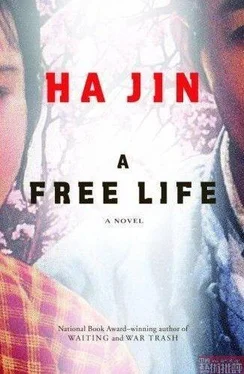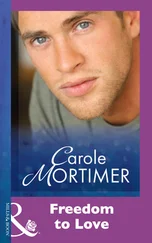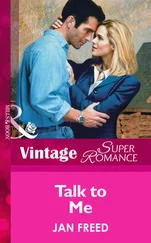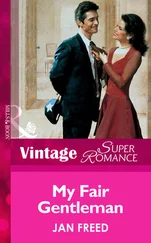"How much?"
"Twenty thousand dollars."
"Yes, that's just enough for one of those cars," the young man said, pointing at the parking lot. "The United States, the richest country in the world, meant to humiliate China with that piddling amount of money."
"What does this have to do with me?" Nan asked. "If my business went belly-up, China wouldn't come to my rescue, would it? Where could I get even one dollar?"
"But you're a Chinese and obligated to do something," Mei Hong said.
"I've done enough for China. Don't want to be charitable anymore." "Don't you have your parents and family back home?" " Yes, I do. "
"Then how can you be so cold and cut yourself off completely? How can you see your own people suffering and dying without lifting a finger to help?"
" Because even if I donated millions, the money would never reach the victims, and the officials would gobble it up. I don't want to fatten those parasites."
"We know what you're saying might be true to some degree, but we have made sure that the money we give will be spent on the victims. That's why so many people have contributed. One fellow at Georgia State is so poor that he lives in a decrepit van, but even he gave twenty dollars."
"Yes," the young man added, "a chemistry professor donated a thousand. He's from Nanjing originally."
Mei Hong went on, "We ought to separate the Chinese government from the common people. In this case, we're helping the victims."
Their words mollified Nan some. Pingping put in, "How about fifty dollars?"
Mei Hong said, "How about sixty? I gave seventy, but I'm not as rich as you. I came to America only last summer. Even my daughter gave twelve dollars-that was all she had for pocket money."
"Give them sixty and let them go," Nan grunted to Pingping.
She opened their checkbook. "Who do I make the check out to?"
"The Georgia Tech Chinese Student Association."
While his wife was writing the check, Nan said to the solicitors, " We give this money not because the victims are mainlanders. If they were people in Hong Kong or Taiwan or elsewhere, we would do the same. We just don't want to have anything to do with the Chinese government."
" We understand. Some old overseas Chinese said the same thing, because they were hurt by the revolution and the political movements," Mei Hong admitted.
That made Nan ponder. He knew that Pingping and he were actually making this donation to China, and that if they hadn't been from there, the solicitors wouldn't have come to them.
"Here you are." Pingping handed them the check.
The solicitors accepted it with a bow, which made the Wus cringe. Before turning to the door, Mei Hong said with wholehearted sincerity, "On behalf of all the suffering Chinese on the mainland, on behalf of our country, we thank you from the bottom of our hearts. You will receive a thank-you letter from the Chinese consulate." She bowed again, and so did the young man.
"No need to hear from them," Nan said. "They wouldn't even renew my passport."
"We know how you feel," said Mei Hong. "For several days we've been begging around shamelessly for our motherland. We only hope our children won't repeat the same act in the future when our country becomes rich and strong."
Both Nan and Pingping were astonished and wordlessly saw them walking away. When they had gone out the door, Nan shook his squarish chin and said to his wife, "Such hotheads! They acted like state delegates, so damned sincere as if the whole of China rested on their shoulders and they couldn't even feel the weight."
"You shouldn't have said that."
"Said what?"
"We have nothing to do with China."
"I know," he sighed. "I was just angry. If only we could squeeze the old country out of our blood."
Nan had once thought they could dissociate themselves completely from the Chinese community here and just live a reclusive, undisturbed life, but now it was clear that China would never leave them alone. Wherever they went, the old land seemed to follow them.
SPRING in Georgia was miserable for Nan and Pingping, both allergic to pollen. The air turned yellowish in daylight, and even the surfaces of roads changed color in the mornings, dusted with the powder from trees. Every day before going to work, Pingping would sweep their deck clean of the yellow dust. Once she couldn't find their car in the parking lot of Winn-Dixie, pollen having coated all the vehicles parked there and dulled their colors. Here the pollen season was much longer than in New England, usually from late February to mid-May. Whenever Pingping went out, she'd wear a mask, a nose piece, regardless of the attention it drew, whereas Nan wouldn't do that, so his nose had swollen to twice its normal size. How eagerly they looked forward to the next rain, which might cleanse the air for a few days so that they could walk outside again. To fight the allergies, Pingping made Taotao and Nan take tablets of bee pollen every day, which helped some, though Nan would have gastric pain if he swallowed them on an empty stomach. The Wus also took plenty of vitamins to build up their resistance to the allergies. Not until mid-May when a drought set in did they begin to feel better. Miraculously Taotao's allergy had subsided considerably this year. Back in Massachusetts pollen had tortured him, but now he could play in the open air without a runny nose or itchy eyes. Nan joked about him, saying the boy had acculturated so well, he would become a redneck eventually.
"I ain't a redneck!" his son protested, imitating some of his classmates, with an upswinging lilt on the last syllable "neck."
"Don't use that kinda language," his mother warned him.
"Yes, ma'am."
They all laughed. Actually, like Taotao, Nan and Pingping had begun to adapt to life here as well. Sometimes Pingping made grits for breakfast, and they often ate kale and collard and mustard greens. Nan and Taotao also liked pork rinds, boiled peanuts, fried okra, hush puppies, barbecue sauce. But the boy disliked the cheese here, which indeed had a dull taste compared with that in the Northeast. Corn bread had become a favorite of theirs, like a kind of pastry, and they'd buy it whenever it was on sale. Back in China, Pingping and Nan had lived on corn buns for many years, but that was a different kind, with no sugar or milk mixed into the cornmeal. It was pure corn, one hundred percent. One day Pingping cooked a few corn buns-the Chinese type-for Taotao, who had asked her for them several times, but the boy, after taking a bite, wouldn't touch it again. "Tastes like crap!" he said.
Unlike him, his parents each ate a whole bun with relish. They also brought one to Tammie. At the sight of it, the waitress got excited, but after having a morsel, she frowned and said, "You mainlanders always insist on the reunification with Taiwan, but I bet no Taiwanese wants to eat this stuff. You should eliminate this sort of corn buns before you talk about the reunification. This is absolutely not for human consumption."
Despite saying that, despite eating only a quarter of the bun with a piece of smoked herring as Pingping suggested, Tammie was pleased by the Wus' sharing it with her. She wrapped the remainder of the bun and took it home to show her roommates.
FOR TWO YEARS Nan had often feared that his wife or son might fall ill, because they had no health insurance. Nan had once known a young man living in downtown Boston who was a Canadian citizen; the fellow had never bought any medical insurance, so if he had an illness, he'd go to Montreal to see his doctor. Nan wished his family could do that.
He talked with Jinsheng Yu, who had once served as a captain in the Chinese People's Liberation Army and was now a reputable insurance agent used by many Asians and Latinos in the Atlanta area. Jinsheng told him that it would cost $860 a month to get the standard health insurance for his family. There was no way the Wus could afford that. At the suggestion of Jinsheng, Nan bought only the emergency coverage for his family for about $90 a month. This was the best he could do. Such a minimum protection, however, did calm him down some. He knew that a lot of Asian immigrants had no medical insurance whatsoever. If they were ill, they'd first go to an herbal shop. With few exceptions, Chinese herbalists are also doctors and can treat ailments and prescribe herbs. Some of them in the Atlanta area had been professors in medical schools back in China, but they couldn't practice here because they specialized only in Chinese medicine and couldn't speak English, so were unable to pass the professional exams. Apprehensive of lawsuits, many of them avoided treating whites and blacks, to whom they sold only herbs and patent pills and boluses.
Читать дальше












